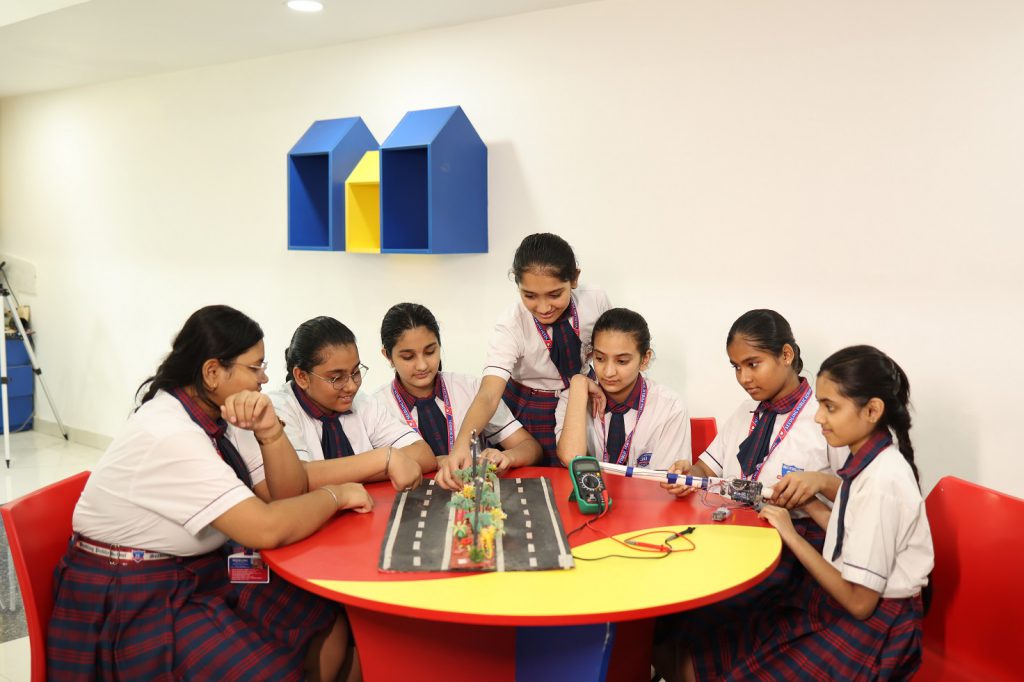Academic performance has become very important in today’s competitive world. Every parent wants their child to excel in their academic performance. Studies are fun for some kids, but for most, they are a burden!
Which child likes to study? The boring magistral classes and the piles and piles of monotonous homework are things that every child runs away from. Additionally, the burden of tuition classes!
From a very young age, these days, most children are sent to some or the other study-related extra classes, be it Vedic math or extra classes for spoken English. Many parents also like to engage their children in an extra language like French or Spanish from the beginning.
While it is good to want your child to excel in studies, it is also important to know how to give them the right environment and conducive strategies to tackle so much. Children don’t have to be burdened, rather they have to be channelised.
By channelisation, we mean, to give them activities that consume their energy in the right way, giving them direction and also growth. In academics also, there are strategies that have to be used for better academic engagement.

Strategies to Improve Your Child’s Academic Performance
- Establishing Routine
For your child to perform better in academics, you need to give them a routine. A strong routine helps increase focus. A routine helps your child remain in a structure and gives them mental and emotional stability.
Have a regular timetable for your children. A set study time puts your child’s mind into a certain pattern. This helps them maintain consistency and eventually, this gives them discipline as well.
- Divide the Tasks
Equip your child with time management techniques for better productivity. You can use the Pomodoro technique, for example, this technique involves studying for short focused periods of time followed by short breaks.
You can also want your child to alternate their study topics or subjects in a way that helps them break the monotony.
- Minimise Distractions
You should ensure that when your child is studying you do not engage in loud chatter. Also, make sure that the television is on low volume and that you do your activities as silently as possible. They should not be using their smartphones when they are studying, that is a big distraction.
- Active Learning Tools
Active learning is much more penetrating and beneficial for your child’s brain in the long run than passive magistral learning. Pen and paper can never be replaced, yet, involving the child in stimulating learning methods like video-graphics-based learning modes will give them a better understanding of concepts.
This will decrease rote learning and encourage genuine understanding of concepts.
- Relaxation and Meditation
Teach your children to meditate or relax in various ways. Unwinding is necessary after a long period of mental engagement. Activities like soft or classical music, painting, pottery, gardening or yoga/meditation help in relaxing the mind.
Let your child engage in hobbies that should not turn into competitive co-curricular activities. Let them spend some time in your kitchen while you cook, maybe they will enjoy the process of cooking.
- Balanced Lifestyle
Studying, playing, bonding, and introspecting should all be a part of your child’s life. An equal distribution of time and energy on all these aspects of life creates a balanced lifestyle for your child.
The home environment should be warm and peaceful.
At a physical level, good and timely sleep along with a nutritious diet helps your child maintain a calm and composed mind.
- Positive Reinforcement
Every time your child does something good in their studies, you have to encourage them with affirmations. Even if they make little progress, your words of encouragement will give them the momentum and motivation to keep working in that direction.
Do not be harsh or pressurising on your child to reach unrealistic goals.
- Realistic Goals
Just as mentioned in the above point, setting goals that are realistic should be your agenda. You should take an objective review of your child’s performance and strengths and weaknesses in collaboration with their teacher. Accordingly, your child should pursue realistic goals.
- Lead by Example
If you want your child to excel in their studies and live a balanced lifestyle, you have to set an example in front of them. Children mostly and obviously, look towards their parents and teachers as role models and consciously or unconsciously adapt behaviours shown to them.
Mimicking is part of learning. When you know that your child will inadvertently mimic you, you need to set examples that will help them pave their own path to success.
First, you follow schedules, you stay disciplined, and you put in the hard work into your work. When they see you do something which brings good results, they will automatically follow your lead.
- Experiment and Exploration
Even if you go through a dozen tutorials and blogs on improving your child’s academic performance, results often come with experimentation and exploration. Any information only turns into knowledge when you apply it and experiment with it.
Maybe, your child has their own ways of doing their work. Do not press them to follow a set pattern, only guide them. Let them explore their own ways of doing things, including studies.
Let your child be happy and peaceful. This will automatically give them the right direction in life.
